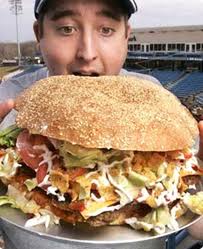Eating Disorders
- Adolescent Eating Disorders
- Anorexia and Bulimia
- Anorexia Eating Disorder
- Binge Eating Disorder
- Binge Disorder Treatment
- Bulimia Eating Disorder
- Cause of Eating Disorder
- Finding Help at a Center
- Children's Eating Disorder
- Compulsive Eating Disorder
- Eating Disorder and Media
- Eating Disorder Assessment
- Eating Disorder Clinic
- Eating Disorder Counseling
- Eating Disorder Facts
- Eating Disorder Help
- Eating Disorder Program
- Eating Disorder Treatment
- Eating Disorder Story
- Eating Disorder Support
- Support Group Role in Treatment
- Eating Disorder Symptom
- Eating Disorder Test
- Eating Disorder Therapy
- Treatment Requires Patience
- Disorder Treatment Center
- Disorder Treatment Facility
- Information on Eating Disorders
- Men and Eating Disorders
- National Eating Disorder Association
- Nighttime Eating Disorder
- Pica Eating Disorder
- Pregnancy and Eating Disorders
- Signs are Prominent
- Teen Eating Disorder
- Type of Eating Disorder
- Weight Loss Eating Disorder
Men and Eating Disorders Are Correlated
It is incredibly important to get help as soon as you notice that there is a problem, and do not feel ashamed to reach out for help. Remember that you do have friends and family, and that even if they are not there for you there are people available out there that are more than able and willing to help you out and to stick by you every step of the way in your recovery.
The most important thing or an activity is eating. In life, you need to eat to carry on with your daily activities. All your metabolic functions depend on eating. Thus doctors always advice to eat properly. You must eat nutritious food. The food eaten must be hygienic and good for health.

Eating disorders are found in all age groups however the highest number is registered in adolescents. Many of those who discover that they have an eating disorder later in life realize that it all started in their adolescence.
Eating disorders are of two types. One when you eat more and the other when you eat less. There are many causes to eating disorders such as: self-esteem, wanting to fit in a group or team, stress, to desire to stand out in a way or the other and so on. Eating disorders are both, when you over eat or when you starve yourself. Both these things are unhealthy.
Eating disorders tend to be considered "women's disorders." In our society, men are not allowed to show the weakness of having mental health disorders, much less suffer from eating disorders. Since men and eating disorders is a problem, they virtually always keep this a painful secret. According to the National Association of Anorexia and Associated Disorders, men comprise about one million Americans who suffer from eating disorders.
When the issue of men and eating disorders comes up, and the men do see their doctors for help, physicians will take a thorough medical history. They usually discover that the disorder began to emerge as teen-agers. An adolescent peer group can be very emotionally harsh; "fat boys" are made fun of and isolated from others. The social pressure to be thin is overwhelming among today's teens.
They know that fat men are even less tolerated in our society than fat women. Men and eating disorders tend to spend their time alone, either starving themselves (anorexia) or binge-eating and then purging by vomiting (bulimia). Just as women are, men are obsessed with calorie counting and unhealthy diets to lose weight. Through anorexic and bulimic behavior, men with eating disorders use food, or the lack of it, to cover feelings of guilt and shame, loneliness, anger, and fear. But men aren't supposed to feel these things! Men must be aggressive, self-confident and desired by women.
Similar to women, men with eating disorders may have suffered physical or sexual abuse as children. They may have been neglectfully denied food due to either poverty or because they were overweight as children. Men with eating disorders learn at an early age that one sure-fire way of preventing sexual abuse is to make themselves as unattractive and undesirable as they can. If they're skin and bones or obese, they figure, their abuser will move on to another victim.
Eating disorders, among either gender, isn't a matter of vanity; wanting to fit into a smaller pair of jeans. In fact, eating disorders don't really have anything to do with food! What drives men with eating disorders is a need to be in control of something, anything. They don't do well expressing emotions, are perfectionists, and don't allow themselves to be less than perfect and have a deeply seated self-loathing. The one thing men can always control is the amount of food they allow themselves to eat.
Parents, teachers, physicians and coaches must understand that men develop eating disorders as women do; they're just better at hiding it until cardiac arrest brings them to the attention of medical personnel, or they die from a disorder that could have been avoided.
